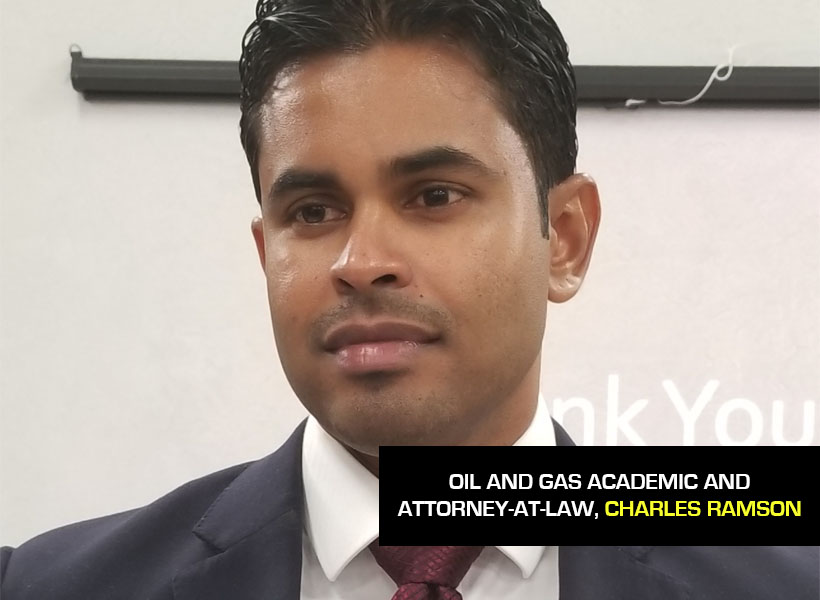Former Parliamentarian Charles Ramson thinks it is imperative that President David Granger understands the wider ramifications for Guyanese — especially as it relates to oil fortunes — if he refuses to uphold the rule of law and not call general and regional elections within three months.
Ramson said that any signal that the government will not uphold the rule of law increases the country’s risk profile rank with international oil companies (IOCs), which in turn decreases the ability to negotiate better fiscal terms in order to capture far better oil revenues.
Ramson, who has a Master’s in Oil and Gas Management, said, “It is important that President Granger do what is in the best interest for Guyana and not what is best for his political tribe since the international investment we need to exploit our oil transcends the political parties in government as IOCs treat successive governments as a continuum.”
Ramson noted that Guyana is at an important crossroad of potentially becoming a major oil and gas producer in the world. Ramson said that this could result in a complete change of fortunes “once we have good governance”.
Ramson noted that Guyana is not equipped with the expertise and technology to discover and produce its own oil. “In addition, offshore exploration and production are very expensive. For instance, the Liza 1 project will cost around US$4B and Liza 2 project will cost around another US$6B just to bring that oil to production. Contrast that with our entire nation’s annual value of production, [our GDP] is about US$3.6B. We, therefore are dependent on IOCs to make that investment so that we can exploit these resources for the benefit of all Guyanese.”
Ramson continued, “When IOCs examine countries around the world with prospects for oil and gas exploration and production, they rank those prospects according to risk. Among the evaluation of risk is the willingness to uphold the rule of law — falling into the category of political risk. The higher the risk, the more favourable the fiscal terms have to be in order to encourage those IOCs to make that investment to discover and produce our oil resources. We are, therefore, competing with many other countries in the world for that investment. We already have four competitors being our neighbours — Venezuela, Trinidad, Suriname, and Brazil — and they are already oil and gas producers.”
The lawyer said that based on what has been seen so far with the 13 discoveries from ExxonMobil within 4 years and the 2012 study by the US Geological Survey, there is potentially a lot more oil left to discover offshore Guyana and not only in the Stabroek block which is licensed to ExxonMobil, Hess, and CNOC Nexen.
“We, therefore, need the investment from the IOCs on good and better fiscal terms so we could maximise the share of revenue Guyana will receive.
Signals are always important when it comes to markets and investment. A signal that the government will not obey the Constitution and not comply with the ruling of the CCJ will send the wrong signal and increase our risk profile rank as an investment prospect for IOCs. This in turns limits our ability to improve our fiscal terms and attract signing bonuses which is a pre-condition for their investment to exploit our oil,” said Ramson.













